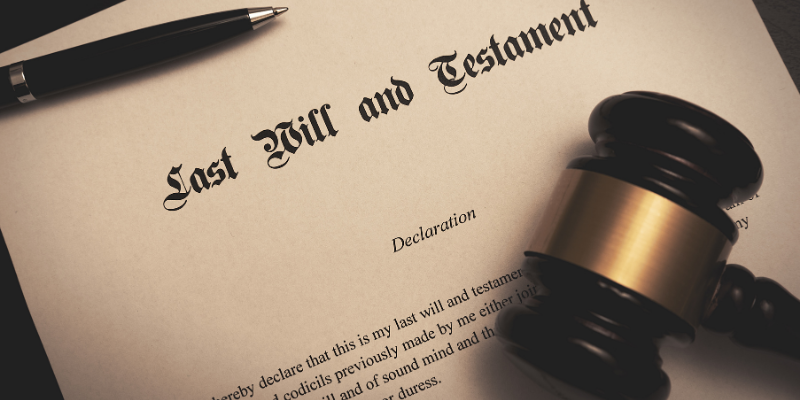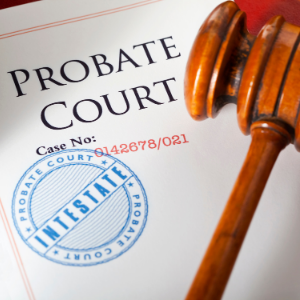
Understanding the Role of an Executor in Estate Management
In Fort Worth, TX, the job of an executor in estate administration is critical, especially when selling a home during probate. An executor is responsible for ensuring that the decedent’s estate is managed by their will and Texas probate regulations.
When a property must be sold during probate, the executor must acquire court approval before proceeding. This process includes contacting heirs and beneficiaries and informing them about the intended transaction.
The executor can post the house for sale and negotiate offers, but they must do so in the estate’s and its beneficiaries’ best interests. The executor must also maintain transparency and follow legal procedures to avoid disagreements or delays.
Understanding the local real estate market in Fort Worth can also help you sell your property quickly while increasing its worth. The executor’s thoroughness in carrying out these obligations guarantees that debts are paid, distributions are delivered correctly, and legal standards manage any remaining assets.
Key Responsibilities of Executors in Texas

In Texas, particularly in Fort Worth, an executor is essential during the probate process, especially when selling a home. The executor manages the deceased’s estate, which includes acquiring assets and paying all bills and taxes.
In Fort Worth, as in other parts of Texas, an executor must follow precise legal procedures when selling a home during probate. This frequently necessitates court approval unless the will expressly authorizes the right of sale.
Executors must also work in the best interests of the beneficiaries, which includes accurately appraising the property and possibly conferring with real estate professionals to get a fair market price. Navigating these responsibilities requires a thorough awareness of local real estate laws and probate procedures to avoid legal problems while carrying out their fiduciary duties.
Legal Documentation Required for Executing Wills
An executor in Fort Worth, TX, must have all legal documents before selling a home during probate. First, the executor must gather and file the actual will in the Tarrant County probate court.
The executor needs the Letters Testamentary to represent the estate legally. This agreement authorizes bank account access and real estate management and sale.
The executor must also appraise the property to determine its fair market value, which may affect sale pricing and negotiations. Proper documentation includes keeping detailed records of sales transactions and communications.
These records depend on transparency and accountability in probate proceedings. Detailed documentation can help resolve beneficiary or creditor disputes quickly and within Texas law.
Navigating Probate Laws in Fort Worth
Executors who liquidate residential real estate during probate in Fort Worth, Texas, face additional challenges. The executor of a Texas estate must liquidate the decedent’s possessions according to trust and estate law.
If the decedent’s will or probate court authorizes it, a Fort Worth executor can sell real property. Before proceeding, the executor must ensure that all known creditors are paid or that the estate has enough liquid assets to fulfill creditor claims. The executor must continuously operate in the beneficiaries’ best interests.
The executor must obtain a market appraisal, possibly list the property for competitive bids, and professionally document every step while selling a residential property in probate. The fiduciary should hire Tarrant County probate and estate litigation lawyers to avoid procedural errors.
Counsel will develop and file motions and notices with the court and ensure the executor fulfills Texas statutory deadlines. Even in personal and legal ambiguity, the executor can support a clear and orderly residential estate asset transfer by obtaining competent legal advice and following standardized norms.
Understanding Texas’s Probate Court Procedures

Navigating Texas probate court procedures is critical for executors managing an estate in Fort Worth, particularly when considering selling a home during probate. In Texas, the probate procedure begins when the local probate court validates the will, granting the executor legal authority to manage and settle the decedent’s estate.
The executor must first inventory all assets, including real property, and determine any existing debts or claims against the estate. Selling a house under probate in Fort Worth necessitates strict respect for Texas regulations governing probate property transactions.
Executors should obtain court approval before proceeding with a sale, as this protects the rights of heirs and beneficiaries. Furthermore, recognizing whether the property is under independent or dependent administration influences how sales are handled; independent administration often provides more flexibility and less court scrutiny than dependent administration.
Executors must know these distinctions when navigating Fort Worth’s probate court procedures to swiftly handle estate proceedings and facilitate lawful and effective property transactions.
Legal Procedure for Selling Property in Fort Worth, TX
In Fort Worth, Texas, the legal process of selling a residence during probate entails several critical processes that Texas probate regulations must follow. First, the executor must be officially chosen by the probate court and granted authority via letters testamentary.
Once appointed, the executor manages the decedent’s estate, which includes selling property if necessary to settle debts or transfer assets to heirs. Before proceeding with the sale of a home during probate, the executor must decide whether they have autonomous administration powers; otherwise, judicial supervision may be necessary.
The executor must apply for permission to sell the property if court approval is required. This includes giving notice to all interested parties and possibly attending a court hearing.
Once approved, the executor can put the property on the market in Fort Worth and negotiate conditions with possible buyers. As stipulated by Texas law, all proceeds from the sale must be used responsibly—primarily to pay off any outstanding obligations and costs of the estate before distributing the remainder to beneficiaries.
Executors should also ensure that any local legislation and disclosure requirements applicable to Fort Worth real estate transactions are followed to avoid legal difficulties during this sensitive procedure.
Steps for Selling Inherited Property in Texas
In Texas, including Fort Worth, selling an inherited property during probate entails numerous crucial processes. First, the executor must ask the probate court for permission to sell the property.
This entails submitting the will and other papers verifying their designation as executor. Once the court has granted permission, the executor should obtain a professional appraisal of the residence to determine its fair market value.
Consult with a real estate professional specializing in probate sales to negotiate local regulations and market trends effectively. The property should be offered for sale, and all marketing should follow the legal standards for selling during probate in Texas.
Typically, the court must approve any offer received before closing to ensure that all beneficiaries are appropriately reimbursed by the will or, if no will exists, state law. Maintaining open contact with all heirs is critical to avoid disagreements and ensure a seamless sale.
Many executors find working with a trusted local cash buyer beneficial in reducing a probate sale’s time, stress, and uncertainty. Texas Cash House Buyer offers exactly that—helping you sell your Fort Worth house fast or buy home for cash in Arlington, TX without lengthy repairs, staging, or repeated showings. They can often work directly with probate attorneys to ensure the sale fits court requirements, which helps keep the process smooth and compliant.
How to Determine the Fair Market Value of Estate Properties
A rigorous appraisal process is required to evaluate the fair market value of estate properties in Fort Worth, Texas, particularly during probate. Executors might consider engaging a certified real estate appraiser familiar with the Fort Worth market to provide an appropriate valuation.
Comparing recent sales of similar homes in the neighborhood might provide information about current market trends and prices. Reviewing internet real estate sites for comparable listings can help determine competitive pricing.
Executors must account for any distinguishing characteristics or prospective difficulties with the property that may affect its value, such as renovations or necessary repairs. Engaging with local real estate agents who are knowledgeable about the Fort Worth housing market can also help determine a reasonable pricing point.
Using these procedures, executors can ensure that they determine a fair market value that reflects the property’s genuine worth during the probate process.
Tax Implications for Executors Selling Properties
Understanding the tax ramifications is critical when an executor in Fort Worth, TX, decides to sell a home during the probate process. Capital gains taxes may be imposed if the property’s sale price exceeds its appraised worth at the time of the deceased’s death.
Executors must be cautious when assessing these gains based on the property’s stepped-up basis. Selling a residence during probate might also impact estate taxes, depending on the overall amount of the estate and current federal exemptions.
The executor should also examine Texas property tax liabilities and ensure that any overdue taxes are paid before the sale is consummated. Proper paperwork and timely filing with federal and state tax authorities are critical for avoiding penalties and legal difficulties.
Working with a skilled tax expert familiar with Fort Worth probate rules can assist executors in successfully navigating these complicated difficulties while meeting their fiduciary duties.
Avoiding Common Mistakes As an Executor in Real Estate Transactions
Selling a house during probate in Fort Worth, TX, requires an executor to navigate intricate real estate transactions while avoiding typical errors. The executor must grasp their legal responsibilities and follow Texas probate regulations to ensure the process runs smoothly and efficiently.
One critical step is to secure the requisite court approval before listing the property, as failure to do so might result in delays and serious legal complications. Another crucial step is to appraise the property’s value accurately, which helps determine a fair market price and prevents conflicts among recipients.
Executors should also retain accurate records of all transactions and correspondence relating to the sale, guaranteeing openness throughout the process. Working with a skilled real estate agent who knows probate sales can be pretty beneficial in navigating any specific hurdles in Fort Worth’s housing market.
Additionally, awareness of the tax ramifications of selling an inherited property might help the estate avoid unanticipated financial problems. By proactively addressing these variables, an executor can successfully handle and finalize a probate real estate deal with minimal issues.
Legal Rights of Beneficiaries in Property Sales
Beneficiaries have specific legal rights during the probate process when an executor decides to sell a house in Fort Worth, TX. Beneficiaries must understand that while the executor has the authority to manage estate assets, including real estate for sale, they must act in the best interests of all beneficiaries.
Executors must communicate openly about property sales during probate, ensuring that beneficiaries know anticipated sales and their implications for inheritance. Beneficiaries in Fort Worth, Texas, have the right to obtain a full accounting from executors to ensure that property sales are correctly conducted and the will disperses proceeds or, if no will exists, state law.
Beneficiaries may also oppose a sale if they believe it breaches probate laws or undervalues the property, potentially requiring court action to resolve. Understanding these legal rights can help preserve beneficiary interests during estate administration in Fort Worth probate procedures.
Managing Disputes Between Heirs Over Property Sales
When an executor is faced with selling a house during probate in Fort Worth, TX, managing heir disputes can be difficult. Heirs may disagree on the sale of the property, which can lead to conflicts that complicate the probate process.
To resolve these disagreements properly, the executor must maintain open and honest contact with all parties. This involves providing regular information on the probate procedures and guaranteeing transparency in property sale bids and judgments.
In such circumstances, employing a professional mediator in Fort Worth can help to resolve issues amicably by facilitating negotiations between difficult heirs. Understanding Texas probate laws and speaking with an experienced estate attorney can help executors navigate complex family relationships and legal requirements for selling a home during probate.
Executors can help ensure a more straightforward probate process by proactively addressing potential concerns and encouraging collaboration among heirs, eliminating delays and lowering the chance of litigation over Fort Worth property sales.
Timelines and Deadlines for Executors Selling Estates
In Fort Worth, TX, selling a residence under probate requires precise dates and deadlines that executors must strictly stick to. Executors manage the estate’s assets, including real estate, and may need to sell a house to pay off debts or distribute assets to heirs.
Before proceeding with the sale, an executor must acquire court approval, which usually involves petitioning the probate court. Once authorization is obtained, the executor should be aware of any statutory waiting periods imposed by Texas probate law, such as notifying beneficiaries and providing them an opportunity to object if necessary.
This notification phase typically lasts several weeks and can impact when the property is formally placed for sale. Executors must also ensure that all sales agreements are in line with local real estate legislation and, if necessary, court clearance is obtained.
Working within these deadlines is critical for executors in Fort Worth to successfully manage and carry out their duties under Texas probate law while avoiding potential legal difficulties or delays.
Hire a Real Estate Agent for Estate Properties in Fort Worth
When dealing with estate property in Fort Worth, employing a professional real estate agent is critical, especially if the executor needs to sell a residence during probate. An experienced realtor familiar with probate sales in Fort Worth can assist you in understanding the complexity of the local market and guarantee that you are following Texas probate rules.
They may offer valuable insights into property assessment and marketing methods specialized to estate homes and help manage necessary repairs or improvements to increase the home’s desirability. Executors can efficiently handle the sale process by working closely with an expert real estate agent, from listing the home to negotiating offers and closing the deal while adhering to legal restrictions specific to Fort Worth’s probate proceedings.
This knowledge simplifies the transaction and maximizes possible profits for beneficiaries involved in the probate process.
Handling Liens and Debts on the Deceased’s Property

When dealing with a house sale during probate in Fort Worth, TX, executors must manage liens and debts on the deceased’s property. First and foremost, the executor must locate any existing mortgages, tax liens, or creditor claims against the estate.
This step frequently includes obtaining a title search to reveal any encumbrances influencing the property’s marketability. Resolving these financial liabilities in Fort Worth is critical before proceeding with the transaction, as potential purchasers often demand clear title insurance.
Executives should prioritize settling these debts with the estate’s assets to ensure transactions run smoothly during probate. Additionally, Texas probate laws require executors to notify creditors of the decedent’s death and address valid claims accordingly.
Executors can promote a successful property sale while satisfying their fiduciary duties under Texas law if they manage these financial issues appropriately.
Liability Risks Related to an Executor’s Sale of a Probate Property
Executors conducting Fort Worth probate sales confront many liability exposures that can be minimized by diligent procedure. A court-authorized sale order is essential to safeguard the executor from financial danger. Without it, any transaction may be disputed.
A qualified evaluation is also recommended. The appraiser’s unbiased assessment determines market value, reducing heir conflicts over undervaluation. Written correspondence with heirs, creditors, and the court should be memorialized. Newsletters, marketing brochures, and showing logs provide transparency.
From the first listing to the last check, detailed documentation is essential. All marketing materials, seller disclosure notices, offer emails with counteroffers, and the executor should keep the final contract should be timestamped. Every document should be timestamped to build a transaction chronology. Consulting Fort Worth-savvy probate real estate brokers and probate counsel improves legislative and procedural compliance.
Finally, the executor should keep a ledger for selling revenues, listing fees, repair invoices, and heir payments. These financial records are good governance and evidence if a recipient challenges the sale’s integrity.
Insights Into Local Real Estate Trends in Fort Worth, TX
In Fort Worth, Texas, changing real estate patterns may affect probate, mainly when an executor sells an estate-owned residence. Fort Worth is one of the nation’s most competitive housing markets due to rapid population growth, changing zoning, and increased commercial activity. Buyer urgency and appreciation trajectories must be considered.
Executors should compare citywide and neighborhood patterns. Downtown and Texas Christian University have higher price elasticity than Keller and Arlington Heights, which are more stable suburban nodes. Listing months and discount requirements may depend on scattered seasonal buyer behavior, interest rates, and local job cycles.
A Fort Worth broker with probate experience and an agency network that safeguards the estate from unwelcome bids and lengthier days-on-market may assist an executor in balancing fiduciary duties with market realities. Fort Worth’s careful balance between buyer competitiveness and a contract-to-close timeframe that respects probate Court dates requires professional advice.
Can an Executor Sell Property in Texas?
An executor in Fort Worth, Texas, can sell real property if the estate’s settlement requires it. Texas probate regulations require executors to locate, collect, and valorize estate assets and pay off debts, taxes, and administrative costs before transferring property to beneficiaries. Real property may be liquidated to pay estate claims or generate a cash reserve for beneficiaries to distribute non-liquid assets equally.
Executors of real estate estates must meet specific procedural and regulatory requirements. Unless the will authorizes independent administration, the court must approve the transaction. In that case, the executor can sell without a probate court sell-off order. Even without independent administration, the consensus of all beneficiaries can authorize the conveyance if they are of legal capacity and obey civil probate statutes.
Fort Worth executors considering estate property sales should understand the legislative nuances. A Texas probate attorney can ensure compliance with all relevant statutes and draft papers to seek judicial sanction of the sale in a way that protects the estate and beneficiaries.
Can the Executor of a Will Sell Property?
Selling a residence during probate in Fort Worth requires strict adherence to Texas probate statutes and a commitment to act in the beneficiaries’ best interests. Unless the decedent’s will expressly permits independent administration, the court’s consent is usually needed before any sale can occur. This judicial requirement, while protective, can slow the timeline.
When independent administration is permitted, executors gain the latitude to finalize transactions without ongoing court oversight, yet the duty to report to beneficiaries remains. Periodic updates, no less than quarterly, show transparency and prudence.
The executor should first commission a formal appraisal to establish the residence’s fair market value and engage a realtor experienced in probate transactions. This dual approach—relying on expert valuation and tailoring marketing to the probate context—upholds the fiduciary standard while facilitating a timely and orderly liquidation of estate assets throughout the Fort Worth fiduciary landscape.
What Is the Average Fee for an Executor of an Estate in Texas?
When discussing the executor’s role in estate administration within Fort Worth, Texas, one of the first questions is how executors are ultimately compensated for their services. Texas statute permits executors to receive a reasonable fee for their efforts, and while it does not prescribe a fixed amount, it does outline a framework that courts commonly follow.
The fee structure generally permits a charge calculated as a percentage of the estate’s gross value, commonly establishing benchmarks of 5 percent of the estate’s gross value and an additional 5 percent of any cash transactions—receipts and disbursements—made in the estate’s name. Variations in the compensation may occur, however, depending on the estate’s complexities and any additional responsibilities that the executor may undertake.
If, for instance, the executor must oversee the sale of real property in Fort Worth during the probate process, that additional responsibility may justify an upward adjustment to the fee, especially if the work involved is substantially greater than that normally expected for estate administration.
Executors contemplating real property dispositions or any other additional duty are well advised to consult a probate attorney versed in the Texas probate code to ensure adherence to the statute and to secure a reasonable and permitted fee under Texas law.
What an Executor Cannot Do?
During the probate proceeding in Fort Worth, TX, the executor oversees the deceased’s estate yet operates within defined boundaries. Recognizing the executor’s prohibitions is essential for preserving the integrity of the probate process.
First, the executor may not sell real property if the decedent’s will mandates court authorization. Moreover, the executor is barred from disregarding the will’s directives or favoring any beneficiary over others, which breaches the fiduciary duty of impartiality.
Executors are prohibited from utilizing estate assets for personal gain, making decisions that contravene the beneficiaries’ collective welfare, or neglecting prudent financial stewardship, including maintaining unequivocal financial records.
Lastly, Texas probate statutes constrain executors from engaging in transactions that create self-dealing or transcend the scope of authority outlined in the will or by the court. Adhering to these statutory and fiduciary restraints not only safeguards the executor’s position but also reinforces the equitable administration of the estate for all stakeholders in the Fort Worth jurisdiction.
Texas Cash House Buyer makes it easy to sell your Fort Worth house fast—no repairs, no delays, just a fair cash offer and a quick closing so you can move forward stress-free. Want to know more about how we can help? Contact us at (817) 587-8108 today!
Helpful Fort Worth Blog Articles
- How to Sell a House Fast in Fort Worth, TX, and Relocate to Another City
- Successfully Selling Your Home With Tenants In Fort Worth, TX
- Mastering Contingency Home Sales In Fort Worth, TX
- Can Someone Take Over My Mortgage in Fort Worth, TX?
- Who Pays For Appraisal And Inspection In Fort Worth, TX
- Expert Divorce Home Appraisal Services In Fort Worth, TX
- FSBO Costs In Fort Worth, TX
- How To Sell Your Fort Worth, TX, Home As-Is
- Understanding Home Sale Contingencies In Fort Worth, TX
- Refinance A House After Divorce in Fort Worth, TX
- Cost Of Asbestos Removal in Fort Worth, TX

| ESTATE EXECUTOR | PROBATE ADMINISTRATION | REALTY | REAL PROPERTY | CASH | LIVING TRUST |
| TRUST | LAWYER | LEGAL COUNSEL | INTESTATE | INTESTATE SUCCESSION | PROPERTY APPRAISAL |
| ESTATE PLANNING | DEEDS | PLANO | PLANO, TX | OWNERSHIP | PROPERTY OWNERSHIP |
| LEGAL ADVICE | HOUSTON | DALLAS | LENDER | JOINT TENANCY | |
| JOINT TENANCY WITH RIGHT OF SURVIVORSHIP | BANK | PROPERTY TAXES | MEDIATION | LETTERS OF ADMINISTRATION | TENANCY |
| JUDGE | INVESTORS | INSURER | ESTATE SALE | DALLAS FORT WORTH AREA | DALLAS |
| CREDIT CARD | COMPANY | AFFIDAVIT | THE EXECUTOR MAY | THE EXECUTOR OF AN | A DECEASED PERSONS ESTATE |
| NAMED IN THE WILL | APPOINTED BY THE COURT |
